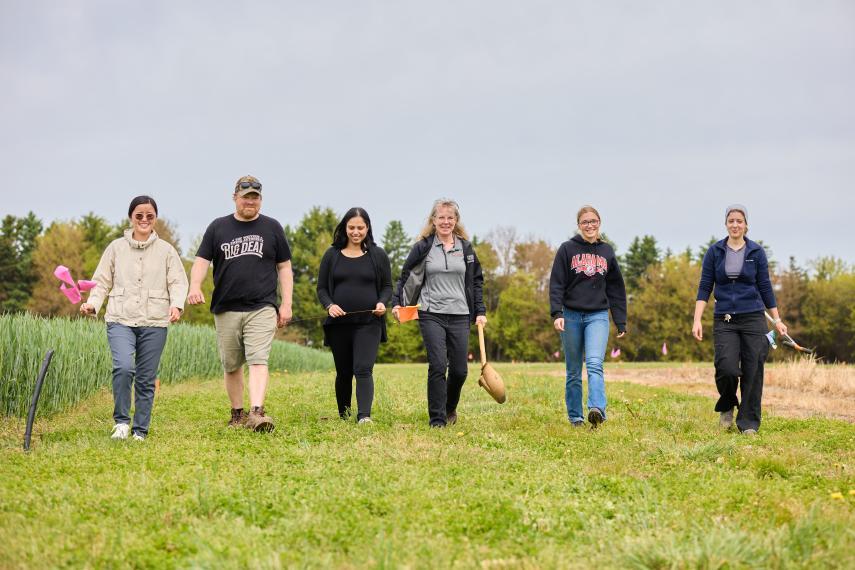
Explore Growing Ontario Solutions, the Alliance Annual Report
Threats to Ontario’s food supply from tariffs, climate change, cyberattacks and diseases have farmers and agribusinesses on their toes. Through the Ontario Agri-Food Innovation Alliance, the Government of Ontario, Agricultural Research and Innovation Ontario and the University of Guelph come together to protect Ontario’s food system and make it stronger, safer and more sustainable.